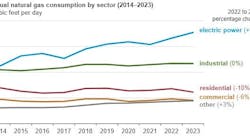Maureen Lorenzetti
Washington Editor
WASHINGTON, DC, Jan. 9 -- A clean air group charged House Republican leaders, working with the US Environmental Protection Agency, are looking to pass legislation through the budget process that could allow some states to avoid using reformulated gasoline (RFG) to meet federal clean air standards.
The Clean Air Trust (CAT) on Wednesday released a leaked Jan. 6 email from a Texas state official to eight members of the House's Texas delegation urging them to attend an EPA briefing on the agency's ozone attainment extension policy. In the email, the Texas official, Duane Taylor, urged a "legislative fix" for court-ordered clean air deadlines.
Neither Taylor nor EPA could be reached for comment on the note.
Secret attack?
CAT called the EPA briefing "a conspiracy." Executive Director Frank O'Donnell said it was "a secret attack on the Clean Air Act through the arcane congressional budget process.
"We fear that the conspirators intend to try putting this amendment on an omnibus congressional budget bill likely to reach the House and Senate floors next week, without hearings, debate or public notice," said O'Donnell.
CAT said the "conspirators" include political appointees from the Bush administration's EPA, Texas state government officials and key Capitol Hill staffers "who are seeking to reverse several court decisions."
In the email, the Texas official told congressional staff "a legislative fix will be necessary to ensure that the BPA (Beaumont-Port Arthur) and DFW (Dallas-Fort Worth) areas retain their extension, and it would be extremely difficult for these areas to reach attainment without the extension."
Under recent court decisions, dozens of areas are expected to face growing pressure to consider RFG as an air quality strategy in light of stricter ozone standards (OGJ, Nov. 25, 2002, p. 25).
In the late 1990s, EPA extended the deadline for several ozone nonattainment areas classified as moderate or serious because they are downwind of other areas with even worse air pollution problems. But EPA's transport policy was successfully challenged in court, and some areas now face EPA penalties if they do not take additional measures to reduce air pollution. This could mean the introduction of RFG, enhanced inspection and maintenance programs, or other measures designed to control pollutants.
Congressional sources confirmed EPA held a Capitol Hill briefing on their attainment date extension policy. But Hill sources said it was "too premature" to speculate what lawmakers might consider.
Contact Maureen Lorenzetti at [email protected]
